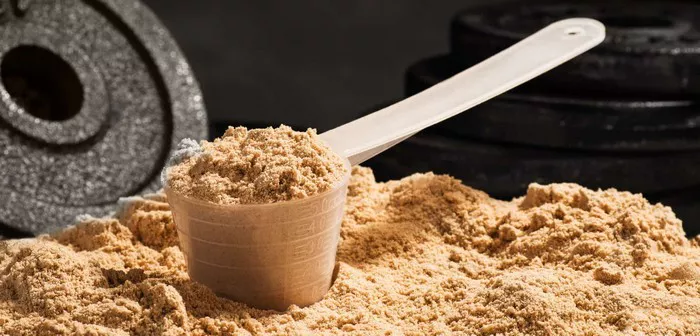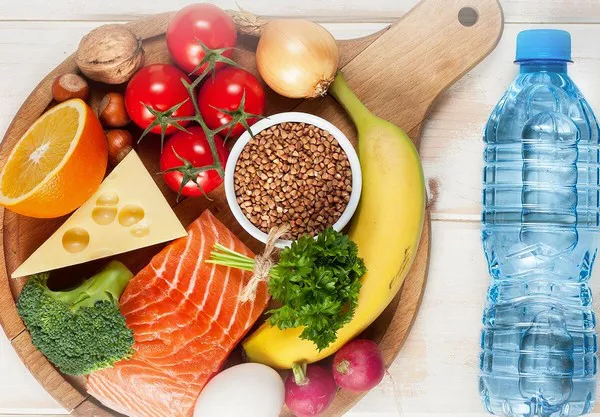Building muscle, including the glutes, requires a combination of strength training, proper nutrition, and adequate recovery. Among these factors, protein intake plays a crucial role in muscle growth and repair. The glutes, comprising the gluteus maximus, gluteus medius, and gluteus minimus, are some of the largest and most powerful muscles in the body. Optimizing protein intake can help ensure effective growth and development of these muscles. This article explores the science behind protein requirements, how much protein is needed to grow the glutes, and practical tips for incorporating protein into your diet.
The Importance of Protein for Muscle Growth
Role of Protein in Muscle Synthesis
Protein is essential for muscle growth because it provides the building blocks, or amino acids, needed for muscle protein synthesis (MPS). MPS is the process by which new muscle proteins are formed, repairing and building muscle tissue after exercise. Consuming adequate protein stimulates MPS, which is crucial for hypertrophy (muscle growth).
Protein and Resistance Training
Resistance training, such as weightlifting, creates micro-tears in muscle fibers. The body repairs these micro-tears through MPS, leading to muscle growth and increased strength. Protein intake is vital during this recovery process, as it supplies the necessary amino acids to support MPS and optimize muscle repair and growth.
Protein Requirements for Muscle Growth
Protein requirements vary based on factors such as age, sex, body weight, and physical activity level. For individuals engaging in regular resistance training, higher protein intake is necessary to support muscle growth and recovery. General guidelines suggest a protein intake of 1.6 to 2.2 grams per kilogram of body weight per day for those looking to build muscle.
Specific Protein Needs for Growing Glutes
Individualized Protein Recommendations
To determine the specific protein needs for growing the glutes, it is essential to consider individual factors. These include:
Body Weight: Heavier individuals generally require more protein to support muscle growth.
Training Intensity and Volume: Those engaging in high-intensity and high-volume training may need more protein.
Overall Diet and Nutrition: Adequate caloric intake and balanced nutrition are important for muscle growth.
Calculating Protein Intake
A common method for calculating protein needs is based on body weight. For example, an individual weighing 70 kilograms (154 pounds) engaging in regular resistance training may require between 112 and 154 grams of protein per day (70 kg x 1.6-2.2 g/kg).
Timing of Protein Intake
The timing of protein intake can also impact muscle growth. Consuming protein-rich meals and snacks throughout the day, particularly before and after workouts, can maximize MPS. Post-workout protein intake is especially important, as it helps kickstart the recovery process.
Best Sources of Protein for Glute Growth
Animal-Based Protein Sources
Animal-based proteins are complete proteins, meaning they contain all essential amino acids necessary for muscle growth. Some excellent animal-based protein sources include:
Chicken Breast: A lean source of protein that is versatile and easy to prepare.
Turkey: Another lean protein source that is rich in amino acids.
Lean Beef: Provides high-quality protein along with important micronutrients like iron and zinc.
Fish: Salmon, tuna, and other fish are rich in protein and healthy fats.
Eggs: A complete protein source that is also rich in vitamins and minerals.
Dairy Products: Greek yogurt, cottage cheese, and milk provide high-quality protein and calcium.
Plant-Based Protein Sources
For those following a vegetarian or vegan diet, plant-based proteins can also support muscle growth. While some plant proteins are incomplete, combining different sources can provide all essential amino acids. Key plant-based protein sources include:
Legumes: Beans, lentils, and chickpeas are rich in protein and fiber.
Quinoa: A complete protein that also provides essential nutrients like magnesium and iron.
Tofu and Tempeh: Soy-based proteins that are versatile and nutrient-dense.
Nuts and Seeds: Almonds, chia seeds, and hemp seeds offer protein and healthy fats.
Protein-Rich Grains: Amaranth, buckwheat, and teff are good sources of plant protein.
Protein Supplements
Protein supplements, such as whey protein, casein, and plant-based protein powders, can be convenient options for meeting protein needs. These supplements can be particularly useful for post-workout recovery or when it is challenging to consume enough protein through whole foods alone.
Integrating Protein into Your Diet
Meal Planning for Optimal Protein Intake
Planning meals and snacks to ensure consistent protein intake throughout the day is crucial for muscle growth. Aim to include a source of protein with every meal and snack. For example:
Breakfast: Scrambled eggs with spinach and whole-grain toast.
Mid-Morning Snack: Greek yogurt with berries and nuts.
Lunch: Grilled chicken salad with quinoa and mixed vegetables.
Afternoon Snack: A protein smoothie with whey protein, banana, and almond milk.
Dinner: Baked salmon with sweet potato and steamed broccoli.
Evening Snack: Cottage cheese with sliced peaches.
Balancing Macronutrients
While protein is essential for muscle growth, it is also important to balance it with carbohydrates and fats. Carbohydrates provide energy for intense workouts, while fats support overall health and hormone production. Ensuring a balanced intake of macronutrients can optimize muscle growth and overall health.
Hydration and Recovery
Adequate hydration is often overlooked but is vital for muscle recovery and overall performance. Drinking enough water supports digestion, nutrient absorption, and muscle function. Additionally, getting enough sleep and managing stress are crucial components of a successful muscle-building program.
Common Mistakes and How to Avoid Them
Over-Reliance on Supplements
While protein supplements can be useful, relying too heavily on them at the expense of whole foods can lead to nutrient deficiencies. Whole foods provide a range of vitamins, minerals, and other beneficial compounds that supplements may lack. Aim to get most of your protein from whole foods and use supplements to fill in the gaps.
Inconsistent Protein Intake
Inconsistent protein intake can hinder muscle growth. Skipping meals or not consuming enough protein throughout the day can limit the body’s ability to sustain MPS. Plan your meals and snacks to ensure a steady supply of protein.
Neglecting Other Nutrients
Focusing solely on protein while neglecting other nutrients can impact overall health and performance. A balanced diet that includes a variety of foods ensures that you receive all the necessary nutrients to support muscle growth and overall well-being.
Conclusion
Growing the glutes, like any other muscle group, requires a combination of targeted resistance training and adequate protein intake. Understanding the role of protein in muscle synthesis and tailoring your protein intake to your individual needs can optimize glute development. Incorporating a variety of protein sources, balancing macronutrients, and maintaining consistent intake throughout the day are key strategies. By avoiding common mistakes and focusing on a holistic approach to nutrition and training, you can effectively support the growth and strengthening of your glutes.
[inline_related_posts title=”You Might Be Interested In” title_align=”left” style=”list” number=”6″ align=”none” ids=”8724,8721,8660″ by=”categories” orderby=”rand” order=”DESC” hide_thumb=”no” thumb_right=”no” views=”no” date=”yes” grid_columns=”2″ post_type=”” tax=””]































